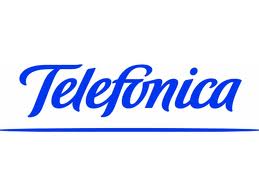A new report by O2, the commercial brand of Telefónica UK, has revealed that the concept of a smart home, where consumers can remotely manage their home appliances such as lights, heating, oven, TV and more, will be crucial to selling the benefits of smart meters to consumers.
The report is based on a YouGov poll of more than 3,000 adults in the UK, a consumer focus group and consultation with industry leaders, and highlights the importance of ongoing consumer engagement when rolling out the £multi-billion smart meter programme.
In one of the largest national infrastructure projects of recent times, the Government is aiming to ensure every home and small business in Great Britain is equipped with a smart meter by 2019. A smart meter will display the amount of energy used in pounds and pence, allowing consumers to better understand and therefore manage their energy usage and related costs. The communication hub located within the smart meter will have the potential to create a home area network, acting as a gateway to future services in a connected home, such as remotely managing household appliances, heating systems, home security systems and even new eHealth services for managing chronic conditions.
The research found that there is currently a low level of consumer awareness with 63% of those surveyed not knowing what a smart meter is. Although when the concept was explained, respondents cited greater visibility (77%) and an end to estimated bills (73%) as the top two reasons in favour of a smart meter. 64% expect that more visibility into their energy usage would help them change behaviour in a way which could reduce their consumption.
Analysts predict that there will be between 15 to 30 appliances and devices connected to a home network in the smart home of the future. The smart meter is just one of them and it will provide the foundation to allow consumers to interact with their homes in a completely new way.
Both the YouGov survey and a consumer focus group organised by Telefónica showed that the smart home is an appealing concept for consumers. 60% of those surveyed by YouGov said that the smart home makes smart meters a more appealing proposition. By contrast, the prospect of energy price reduction is less of an appeal. Only 23% of those surveyed felt that energy prices would drop and only 18% would be motivated to switch to a smart meter if the annual cost savings were £50 or less.
David Taylor, Managing Director, M2M, at Telefónica Digital UK said: “The lessons from smart meter roll outs in other countries is that you have to bring consumers with you so they want to have these devices installed in their homes. The Government understands this and is creating a Central Delivery Body to take on this task. What our research shows is that, in order to secure broad consumer support for smart meters, it is important to communicate both the rational benefits – potential cost savings, carbon reduction – and also paint a compelling vision of the near term future, with the smart home providing consumers with a range of connected devices and services”.
Helen Rowley of Mumsnet, the UK’s biggest social network for parents, said: “For most parents, the promise of moderate savings from installing a smart meter is helpful, but the real appeal lies in time-saving activities, like being able to come home to a pre-heated oven. The smart home vision brings the benefits of smart meters to life”. (The Mumsnet focus group took place over two weeks, when members of the research panel were invited to take part via a discussion thread which attracted more than 130 posts.)
The report highlights data privacy (59%), accuracy of billing (32%) and the installation process (28%) as the most important concerns that need to be addressed through any consumer engagement process.
David Taylor continued: “The Department of Energy and Climate Change (DECC) is aware of the opportunities and concerns around smart metering and our report suggests that the measures it is putting in place around privacy and security through the creation of an independent Data Communications Company is the right approach.”
Telefónica UK, which operates the O2 brand in the UK, is bidding to be a communications service provider in the Government’s smart metering implementation programme (SMIP). It commissioned the research to help all parties involved better understand consumer attitudes towards smart meters and inform thinking around how best to engage with them to ensure a successful rollout. Based on the findings, Telefónica makes five recommendations for consideration:
- Take a partnership approach to consumer engagement with all the companies involved in the programme clearly articulating the benefits of smart metering and the smart home while utilising the trust and expertise of third parties such as consumer groups, charities and other voluntary bodies;
- Address concerns around privacy and security through open and honest communication around the measures undertaken to protect consumer data and the role of the DCC as an independent entity which consumers can trust to protect their data and its usage;
- Build an ecosystem, through open standards and defined specifications, which will encourage and incentivise third party innovation to extend the benefits of smart metering to consumers through additional applications and services;
- Create a code of practice for installation to ensure installers are highly trained, trusted, certified, and aware of the needs of different consumer segments;
- Create a network which can support future applications by being scalable, open, and able to support the smart home vision from day one.
The report combines data from a quantitative survey of more than 3,000 adults in the UK carried out by YouGov in March 2013 with in-depth responses from a representative consumer focus group which featured a cross section of nine energy bill payers and took place in London on 13th March 2013. These findings are complemented by input from Mumsnet as well as insights on global smart meter trials by the European Smart Metering Industry Group.
O2 is the commercial brand of Telefónica UK Limited and is a leading communications company with over 23 million customers. O2 runs 2G and 3G networks and was the first to pilot 4G/LTE, reaching speeds of over 100Mpbs, as well as owning half of Tesco Mobile. It also operates O2 Wifi, O2 Health, O2 Unify, O2 Media and has recently launched the O2 Wallet. O2 employs over 11,000 people in the UK, has 450 retail stores and sponsors The O2, O2 Academy venues and the England rugby team.
Telefónica UK Limited is part of Telefónica Europe plc which uses O2 as its commercial brand in the UK, Ireland, Slovakia, Germany and the Czech Republic and is a business division of Telefónica SA.










